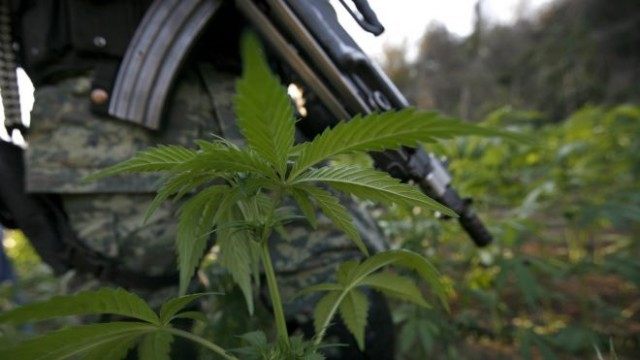Marijuana Some drug war observers believe that legalization measures in certain U.S. states are causing not only a decline in marijuana smuggling, but a decline in Mexico’s homicide rate as well.
According to GlobalPost.com, U.S. Border Patrol noted a 24 percent drop in marijuana seizures in 2014, the year after Washington and Colorado fully legalized marijuana sales and use at the state level. Mexican security forces noted a parallel drop in marijuana production south of the border.
While lower seizure rates can be attributed to many things—including an increased law enforcement presence and shifting cartel traffic routes—it is plausible to say there could be considerable correlation between the U.S. legalization measures and shifts in the movement of Mexican dope. Mexican homicides have also dropped during the same time period, reaching a peak in 2011 of 22,852, and then dropping to 15,649 in 2014, according to the Mexican government’s numbers.
However, the drug market is a very complex place with many factors simultaneously in play. Marijuana has historically accounted for the largest volume of illegal drugs crossing our southwest border, but other drugs like cocaine, heroin, and methamphetamine are bigger moneymakers pound for pound. US authorities are noting an increase in black tar heroin and high-purity meth coming from Mexico as they see dope seizures drop.
Mexican drug war expert Alejandro Hope told GlobalPost.com, “In the long run, it looks like the U.S. market for illegal Mexican marijuana will keep shrinking.” He continued, “The logic of the legal marijuana market is that it will force prices down. This would take out the big profits from the illegal market.”
Some cartels like Los Zetas are relying less on drug profits and have turned to the kidnap and ransom trade to boost income. This business has boomed from criminal organizations who prey on the increasing number of vulnerable migrants traveling north through eastern Mexico to the U.S. from Central America. As such, despite the drop in Mexican marijuana production and trafficking, cartels will continue to exploit other avenues for bringing in illicit income.
Sylvia Longmire is a border security expert and Contributing Editor for Breitbart Texas. You can read more the activities of Mexican drug and human smugglers in her new book, Border Insecurity: Why Big Money, Fences, and Drones Aren’t Making Us Safer.

COMMENTS
Please let us know if you're having issues with commenting.